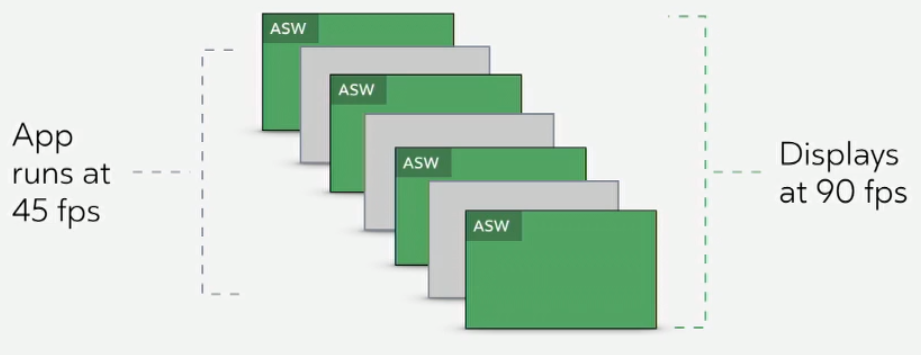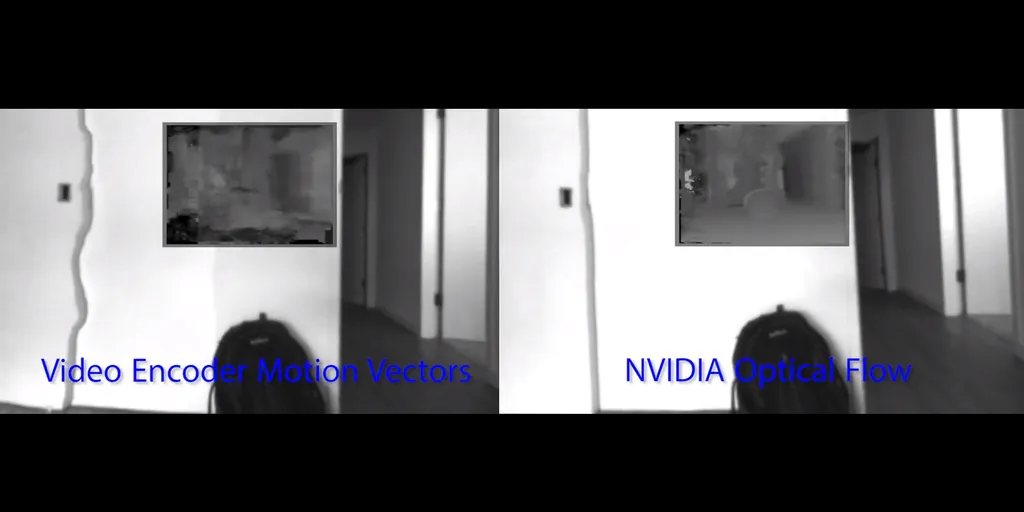Next month’s Oculus Rift S software update should bring higher quality ASW 2.0 and Passthrough+ on the latest NVIDIA Turing GPUs.
In addition to the RTX cards, this should also work on the GeForce GTX 1660 and 1660 Ti since they have the Turing video encoder hardware. It’s unclear whether it will work on the GTX 1650, as it has a previous generation encoder chip instead.
ASW
ASW (Asynchronous Spacewarp) is the Oculus Rift’s driver-level frame drop compensation technology.
When your GPU isn’t maintaining framerate in VR, ASW kicks in automatically. It forces the running app to render at half the refresh rate of the headset and generates a synthetic frame after each real frame. So when ASW is engaged, half the frames are real and half are synthetic. Whenever performance returns to normal, ASW deactivates and the app returns to normal rendering.

To synthesize the new frame, the motion between the previous frames is used. This is obtained from the graphics card’s video encoder. However, the quality of these ‘motion vectors’ is far from perfect.
Passthrough+
Passthrough+ is the name for the camera passthrough mode on the Rift S. When you move out of the Guardian boundaries or double tap the Oculus button, you will see the real world in black & white.
On Quest the passthrough is not at the correct scale or depth. Objects look smaller and up close may result in eye strain.
Rift S uses the same video encoder used for ASW and same algorithms to deliver a result with correct scale and depth. It works by comparing the frame motion to the known position of the headset. Facebook claims Passthrough+ is “state-of-the-art”.
Turing Optical Flow
The latest NVDIA ‘Turing’ GPUs, such as the RTX cards and GTX 1660 Ti, contain new hardware for motion detection, called optical flow. This is made available through NVIDIA’s Optical Flow SDK.
This new hardware “quadruples the macroblock resolution, increases motion vector resolution, enables following objects through intensity changes, and emphasizes plausible optical flow over compression ratios”. Facebook claims this results in half the errors.
Because Passthrough+ works entirely from these motion estimations, this results in an “increased stereo resolution”. If you have a Turing GPU, your Passthrough+ experience should get noticeably better next month.
Other June Update Improvements
The June update is also slated to bring improvements to the built in audio. Some users are experiencing a bug where volume is too low, and many have complained about the poor bass. Oculus Head of VR Product Nate Mitchell stated that the update will improve “bass and overall volume” and that it makes “a meaningful difference”.
Additionally, Facebook told us it is “working on” a fix for the “white snow” issue some users are experiencing where the image will sometimes flash to a white static pattern. Improvements to this are slated to come “shortly after launch”, but it’s unclear whether that means in time for the June update.


























